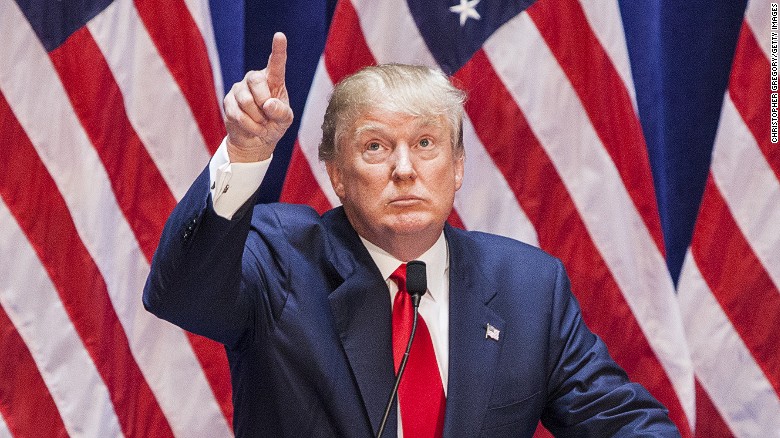
If you’re one of those people who don’t trust the intelligence community when it says Russia ran an influence campaign against Hillary Clinton, I have some good news. We will soon know whether the spies are being straight with us.
In less than two weeks, Donald Trump is to become president and his nominee for CIA director is Republican Rep. Mike Pompeo. Former Republican senator Dan Coats is Trump’s choice to be the next director of national intelligence. If the evidence supporting the unclassified report released Friday on the Russian hacking is flimsy, these three will know soon enough.
That report asserts that Russian President Vladimir Putin authorized a cyber-espionage and propaganda campaign to discredit the Democratic presidential nominee — an explosive claim. But the report is silent on how the government knows all of this.
The report concludes that over time the Russians developed a preference for Trump. It says Russia’s military intelligence agency, the GRU, gave WikiLeaks and other sites the e-mails hacked from Democratic officials. All of this is said to have been coordinated with an overt propaganda campaign enabled by the Kremlin television network RT and by Russian-funded online trolls.
Rep. Devin Nunes, the Republican chairman of the House Permanent Select Committee on Intelligence and a member of the Trump transition team, told me Sunday that he intends to check the sources and analysis of the report.
“With all major intelligence products, we are the legislative branch of government that has a responsibility to do oversight over the intelligence community,” he said. “Given the size and scope of this report, this will be something we will take a look at.”
Nunes said his committee intends to interview the analysts who wrote the report and ask them how they reached its conclusions and the basis for determining with “high confidence” that Putin was behind both the hacks and the leaks of the Democrats’ emails. The report says the National Security Agency, which focuses on electronic eavesdropping, has “moderate confidence” in the conclusions.
Nunes of course has been checking the intelligence community’s work since he became chairman of his committee in 2015. But under President Barack Obama, he often complained that he was slow rolled by the spy chiefs. In some cases he had to reach out to lower-level intelligence officials to get information.
Nunes has said he is puzzled by the speed with which the government produced this intelligence product on the Russian operation against the 2016 elections, given that the Obama administration has not previously released unclassified reports on Russia’s hacking and dirty tricks. Russia is alleged to have hacked the State Department’s unclassified email system in 2014. The GRU was linked to a bomb placed outside the U.S. Embassy in Tblisi, Georgia, in 2011. U.S. intelligence assessments of these claims have not been made public.
Nunes has been a tough critic of Putin for some time. In April he said the intelligence community’s failure to understand the Russian leader’s intentions and plans was the greatest intelligence failure since 9/11. On Sunday, he told Fox News that he was skeptical of efforts to work cooperatively with Putin given the failure of past presidents to reset the relationship.
Critics of the report like Glenn Greenwald, the founding editor of the Intercept, have argued that U.S. public intelligence assessments have been discredited before. In television interviews, Greenwald has reminded viewers of the infamous Gulf of Tonkin briefings from 1964 when the CIA told Congress that a U.S. destroyer had been attacked by North Vietnamese boats twice. The second incident never happened. The other obvious example is the intelligence assessments shared with the public and Congress before the 2003 Iraq War.
Both of these incidents though are not quite like the report on Russian hacking. To start, the government’s presentation of intelligence before the Iraq War was specific. Remember Colin Powell’s presentation to the U.N. Security Council? He shared intercepts, information from human sources and other specifics that he said proved Saddam Hussein was concealing weapons of mass destruction. The main criticism of Friday’s report is that it doesn’t include these kinds of details.
The Gulf of Tonkin incident was a pretext to expanding the Vietnam War. This declassified report is not being used to justify military action against Russia. Friday’s report is, however, an indictment of Obama’s and the intelligence community’s failure to deter Russian meddling. The only thing new about the latest Russian operation is that the hacked emails were released to the American public before an election. Russia has been hacking U.S. targets and running propaganda operations against the U.S. public for years.
After the fall of the Soviet Union, former KGB archivist Vasili Mitrokhin handed reams of handwritten notes of the KGB’s records that documented numerous Soviet influence operations against the U.S. These ranged from planting false stories about the CIA’s role in inventing the AIDS virus to attempting to discredit Martin Luther King Jr. More recently, we’ve seen the Russians release to the public intercepted phone calls between U.S. diplomats discussing the uprising in Ukraine.
Finally, this is a rare example of when state secrecy is needed. If Russia were to learn which computer networks contained implants that detected the plot, or for that matter what kinds of human sources were used to reach the report’s conclusions, the Kremlin would win twice. The sources and methods the U.S. intelligence community uses to learn about Russia’s direct actions against America are worth preserving.
The good news is that Obama’s political opposition will soon have access to all the secret evidence behind the claims that Russia tried to influence the election and hack the Democratic Party. The skeptics will get to dig in. Either they or Obama will be vindicated.
(c) 2017, Bloomberg View · Eli Lake

